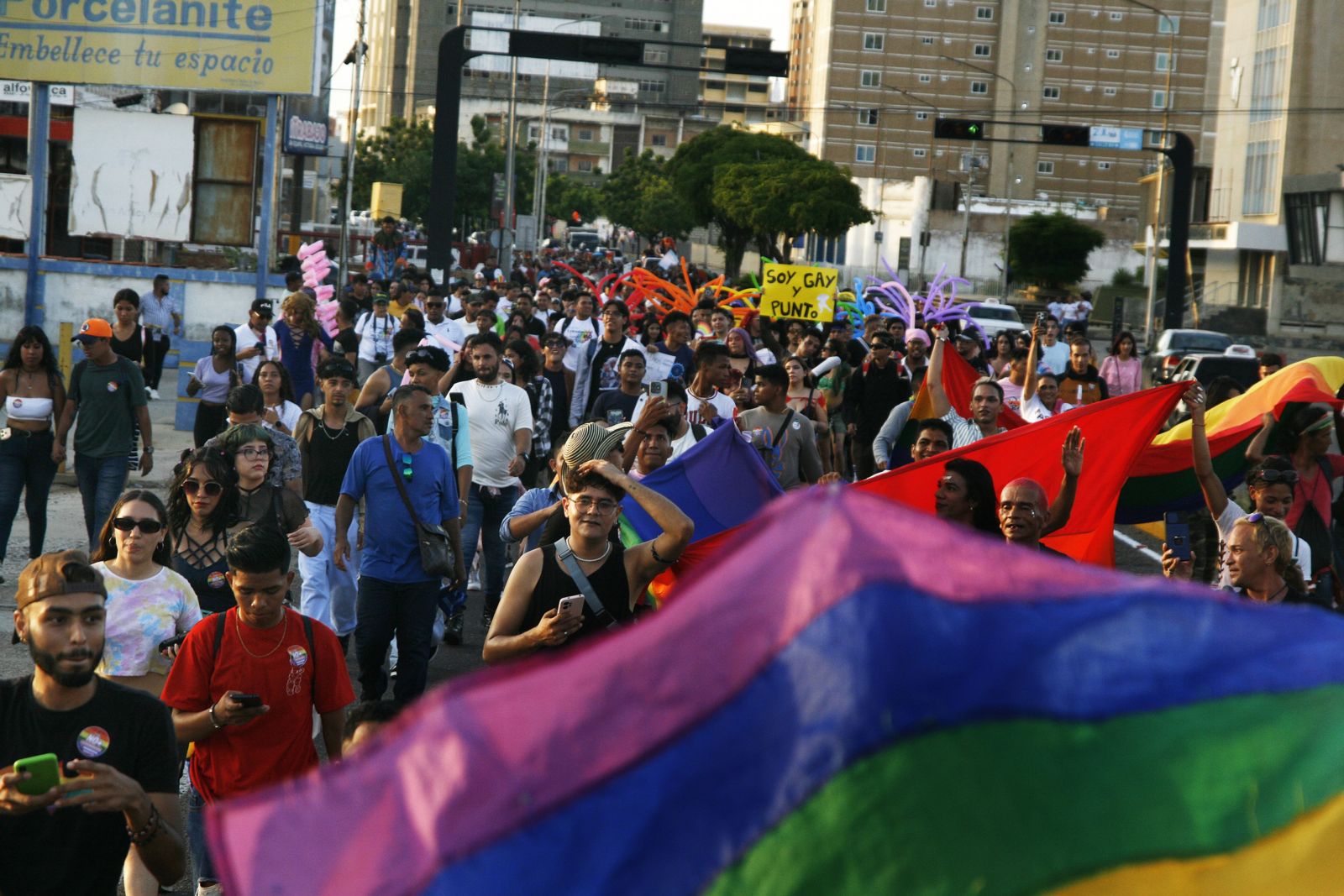On August 3, 2024, Venezuelan LGBTIQ+ activist Yendri Omar Velásquez was arbitrarily detained by Venezuelan authorities at Maiquetía Airport. Velásquez was part of an organization that traveled to the United Nations to denounce human rights violations in his home country. He was held incommunicado for several hours before being released. Days later, on August 10, alleged Venezuelan security agents attempted to raid the house of Koddy Campos, an LGBTQI+ activist also from Venezuela.
Both cases are part of the fiercest repression to date by Nicolás Maduro’s government against citizens following the presidential elections on July 28—elections in which Maduro claimed victory while refusing to publish the tally sheets, sparking extensive protests around the country.
This crisis is a culmination of the various human rights violations taking place for decades, including the government’s minimal acknowledgement of rights for LGBTIQ+ people. The lack of a strong and independent judicial system, combined with deeply rooted cultural homophobia and transphobia, has left LGBTIQ+ people unprotected. However, the LGBTIQ+ movement persists. The Pride march in the capital city of Caracas has continued, as have protests against arbitrary actions, such as the detention of 33 people a year ago in a sauna in Valencia, Carabobo state.
Connecting democratic principles with LGBTIQ+ rights
The Venezuelan case raises questions about the various relationships between democracy and the rights of LGBTIQ+ people. Democracies have proven to advance LGBTIQ+ rights, although slowly and not without setbacks. Democratic deterioration, on the other hand, has led to rollbacks of LGBTIQ+ rights, as gender and sexuality are depicted as one of the first “targets” of authoritarian governments. Attacks on LGBTIQ+ people are part of the old playbook of assigning the role of scapegoats to historically discriminated populations. But even in authoritarian regimes or in countries experiencing democratic backsliding, the LGBTIQ+ movement finds creative, albeit risky, ways to resist.
This connection shows that protecting democracy and safeguarding diversity are two sides of the same coin. Without respect for populations historically facing discrimination, there is no true democracy.
How we define democracy also influences the protection of LGBTIQ+ rights. Holding fair and open elections is not enough. Democracy must also include basic political rights, including freedom of expression, association, and protest, and the right to vote and be elected. Those are the rights that protect minorities from one hegemonic view. The example of Brazil serves to illustrate this point. The most recent local elections featured the highest number of LGBTIQ+ candidates in history, and 237 were elected, the majority of them women and Black people.
There is also no democracy without an independent and impartial judicial system. The judiciary has been an essential place for recognizing the rights of LGBTIQ+ people. As numerous studies and the experiences of different countries show, access to justice has led to structural legal changes recognizing LGBTIQ+ rights within democratic states. Therefore, the right to access justice is an essential element of democracy, in terms of both recognizing the rights of communities facing discrimination and defending democracy itself.
These are the foundations for building a true democracy centered on diversity. Along with civil and political rights, a participatory and diverse democracy also requires integrating three elements from other rights: access to social and economic rights, the possibility of living a life free from violence, and protecting the environment from climate change.
These are areas where authoritarian regimes recurrently fail. Authoritarian leaders exploit deep social inequalities to rend the social fabric that allows democracy to thrive. They often invoke tough-on-crime rhetoric to promise security, thereby eroding human rights without achieving sustainable results and profoundly affecting the lives and integrity of all citizens, particularly the most marginalized social groups, such as women and LGBTIQ+ people. Further, climate change and the environmental consequences of human activities create new risks for guaranteeing rights, as the most marginalized groups are usually the ones who suffer most during times of scarcity and crisis.
Fighting back against authoritarian attempts to rescind rights
By directly addressing these areas, movements can demand substantive equality and strengthen democratic systems. To do so, states and social actors should politically and financially support at least five initiatives to advance the protection of LGBTIQ+ rights.
The first is to demand the repeal of laws that restrict freedom of expression, association, and peaceful assembly, including all anti-LGBTIQ+ laws that impact those rights. Second, they should support intersectional actions in defense of democracy that integrate different marginalized groups, supporting activists and civil society organizations that defend democracy at a local level. Local actors are more effective at developing social change strategies regarding gender and sexuality for their communities.
Third, it is important to map resistance strategies that have already been developed in different contexts and enhance them financially. Fourth, governments should also support initiatives to oppose the use of technology to discriminate and quash civil society voices, while also supporting technological solutions to advance the rights of LGBTIQ+ people. Finally, governments should promote the participation of LGBTIQ+ people in democratic spaces, support their organizations, protect them from political violence, and take actions to counter misinformation during electoral mobilization.
These measures can help build diverse democracies that include LGBTIQ+ people in participatory processes and protect us from the risks of authoritarianism.

